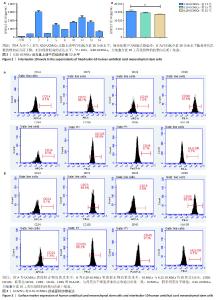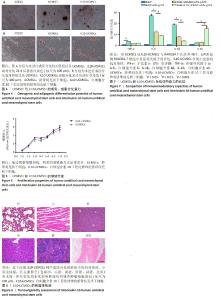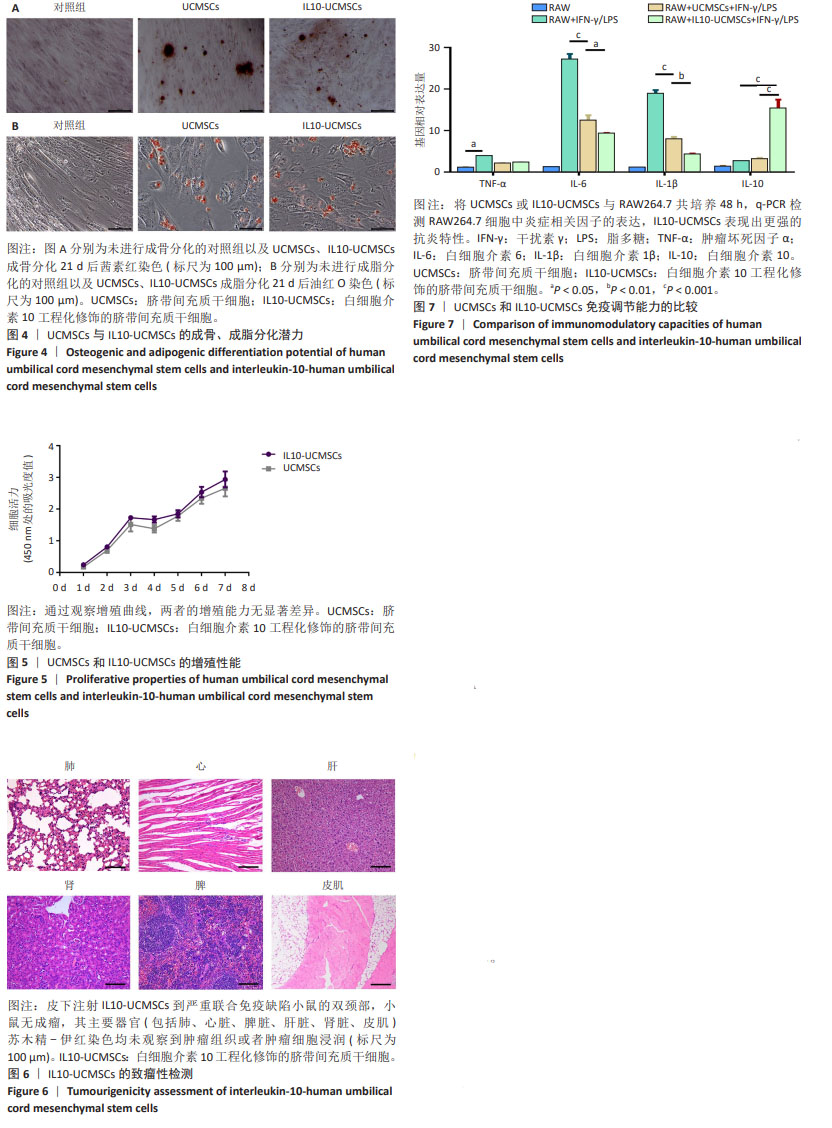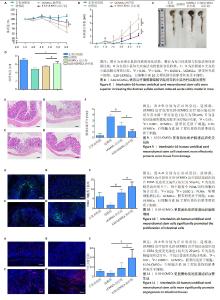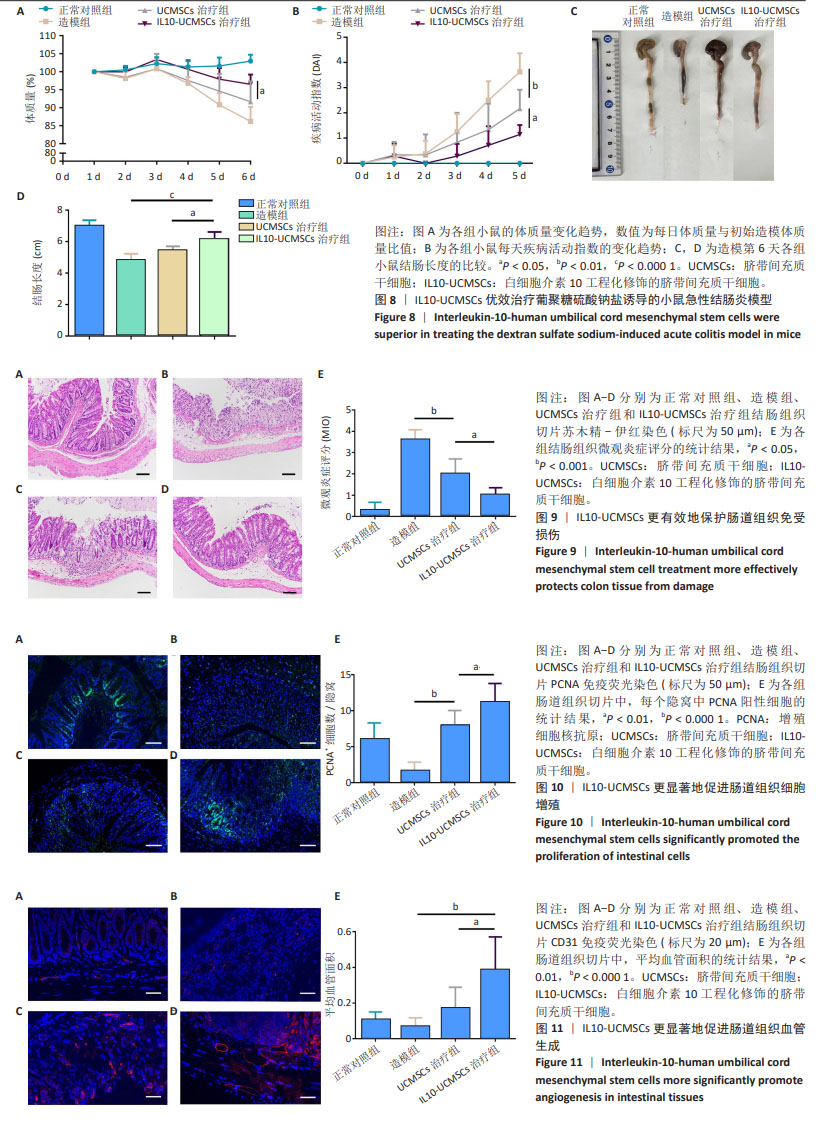[1] FAYE AS, COLOMBEL JF. Aging and IBD: A New Challenge for Clinicians and Researchers. Inflamm Bowel Dis. 2022;28(1):126-132.
[2] CHACHU KA, OSTERMAN MT. How to Diagnose and Treat IBD Mimics in the Refractory IBD Patient Who Does Not Have IBD. Inflamm Bowel Dis. 2016;22(5):1262-1274.
[3] DOWDELL AS, COLGAN SP. Metabolic Host-Microbiota Interactions in Autophagy and the Pathogenesis of Inflammatory Bowel Disease (IBD). Pharmaceuticals (Basel). 2021;14(8):708.
[4] FLYNN S, EISENSTEIN S. Inflammatory Bowel Disease Presentation and Diagnosis. Surg Clin North Am. 2019;99(6):1051-1062.
[5] WANG M, SHI J, YU C, et al. Emerging strategy towards mucosal healing in inflammatory bowel disease: what the future holds? Front Immunol. 2023;14:1298186.
[6] KRAMPERA M, LE BLANC K. Mesenchymal stromal cells: Putative microenvironmental modulators become cell therapy. Cell Stem Cell. 2021;28(10):1708-1725.
[7] SPEES JL, LEE RH, GREGORY CA. Mechanisms of mesenchymal stem/stromal cell function. Stem Cell Res Ther. 2016;7(1):125.
[8] HULDANI H, MARGIANA R, AHMAD F, et al. Immunotherapy of inflammatory bowel disease (IBD) through mesenchymal stem cells. Int Immunopharmacol. 2022;107:108698.
[9] LI Y, MA K, ZHANG L, et al. Human Umbilical Cord Blood Derived-Mesenchymal Stem Cells Alleviate Dextran Sulfate Sodium-Induced Colitis by Increasing Regulatory T Cells in Mice. Front Cell Dev Biol. 2020;8:604021.
[10] XU J, WANG X, CHEN J, et al. Embryonic stem cell-derived mesenchymal stem cells promote colon epithelial integrity and regeneration by elevating circulating IGF-1 in colitis mice. Theranostics. 2020;10(26):12204-12222.
[11] FORBES GM, STURM MJ, LEONG RW, et al. A phase 2 study of allogeneic mesenchymal stromal cells for luminal Crohn’s disease refractory to biologic therapy. Clin Gastroenterol Hepatol. 2014; 12(1):64-71.
[12] GRÉGOIRE C, LECHANTEUR C, BRIQUET A, et al. Review article: mesenchymal stromal cell therapy for inflammatory bowel diseases. Aliment Pharmacol Ther. 2017;45(2):205-221.
[13] WANG S, LEI B, ZHANG E, et al. Targeted Therapy for Inflammatory Diseases with Mesenchymal Stem Cells and Their Derived Exosomes: From Basic to Clinics. Int J Nanomedicine. 2022;17:1757-1781.
[14] YANG Y, ZHANG X, LIN F, et al. Bispecific CD3-HAC carried by E1A-engineered mesenchymal stromal cells against metastatic breast cancer by blocking PD-L1 and activating T cells. J Hematol Oncol. 2019; 12(1):46.
[15] NEUMANN C, SCHEFFOLD A, RUTZ S. Functions and regulation of T cell-derived interleukin-10. Semin Immunol. 2019;44:101344.
[16] HAN YF, TAO R, SUN TJ, et al. Optimization of human umbilical cord mesenchymal stem cell isolation and culture methods. Cytotechnology. 2013;65(5):819-827.
[17] XIE Y, LIU W, LIU S, et al. The quality evaluation system establishment of mesenchymal stromal cells for cell-based therapy products. Stem Cell Res Ther. 2020;11(1):176.
[18] ZHONG J, SHI G. Editorial: Regulation of Inflammation in Chronic Disease. Front Immunol. 2019;10:737.
[19] SARAIVA M, VIEIRA P, O’GARRA A. Biology and therapeutic potential of interleukin-10. J Exp Med. 2020;217(1):e20190418.
[20] THOMPSON AI, LEES CW. Genetics of ulcerative colitis. Inflamm Bowel Dis. 2011;17(3):831-848.
[21] CRAWLEY JB, WILLIAMS LM, MANDER T, et al. Interleukin-10 stimulation of phosphatidylinositol 3-kinase and p70 S6 kinase is required for the proliferative but not the antiinflammatory effects of the cytokine. J Biol Chem. 1996;271(27):16357-16362.
[22] KONTOYIANNIS D, KOTLYAROV A, CARBALLO E, et al. Interleukin-10 targets p38 MAPK to modulate ARE-dependent TNF mRNA translation and limit intestinal pathology. EMBO J. 2001;20(14):3760-3770.
[23] KOELINK PJ, BLOEMENDAAL FM, LI B, et al. Anti-TNF therapy in IBD exerts its therapeutic effect through macrophage IL-10 signalling. Gut. 2020;69(6):1053-1063.
[24] LI B, ALLI R, VOGEL P, et al. IL-10 modulates DSS-induced colitis through a macrophage-ROS-NO axis. Mucosal Immunol. 2014;7(4):869-878.
[25] VAN DEVENTER SJ, ELSON CO, FEDORAK RN. Multiple doses of intravenous interleukin 10 in steroid-refractory Crohn’s disease. Crohn’s Disease Study Group. Gastroenterology. 1997;113(2):383-389.
[26] COLOMBEL JF, RUTGEERTS P, MALCHOW H, et al. Interleukin 10 (Tenovil) in the prevention of postoperative recurrence of Crohn’s disease. Gut. 2001;49(1):42-46.
[27] LIU J, REN H, ZHANG C, et al. Orally-Delivered, Cytokine-Engineered Extracellular Vesicles for Targeted Treatment of Inflammatory Bowel Disease. Small. 2023;19(50):e2304023.
[28] HARRELL CR, JOVICIC N, DJONOV V, et al. Mesenchymal Stem Cell-Derived Exosomes and Other Extracellular Vesicles as New Remedies in the Therapy of Inflammatory Diseases. Cells. 2019;8(12):1605.
[29] SÉMONT A, MOUISEDDINE M, FRANÇOIS A, et al. Mesenchymal stem cells improve small intestinal integrity through regulation of endogenous epithelial cell homeostasis. Cell Death Differ. 2010;17(6): 952-961. |
